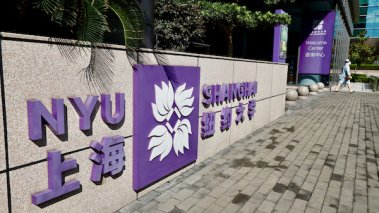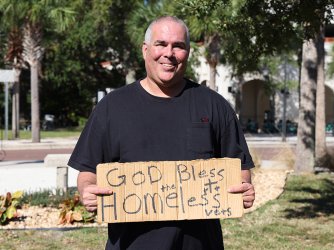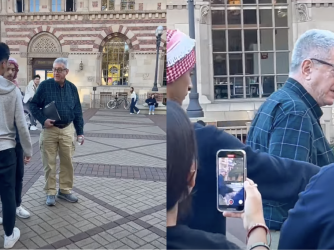Table of Contents
Academic freedom, freedom of expression under the spotlight in international higher education

From NYU in Shanghai to Northwestern in Qatar, academic freedom and free expression can be a source of contention in international higher education. (Brook Gardener / Shutterstock.com)
As FIRE frequently documents, academic freedom and free expression can be a source of contention in international higher education, from accusations of censorship at satellite campuses to pressure placed on traveling students and scholars.
In recent weeks, developments in some major international higher education hubs highlight the ways the global education industry still faces uncertainty regarding student and faculty rights, and raise new questions about the future of such programs.
In Singapore, Yale-NUS announces closure. An academic freedom survey offers troubling results.
Yale-NUS, a liberal arts institution formed by National University of Singapore and Yale University, will close its doors in 2025. According to the Yale Daily News, NUS will combine Yale-NUS College with the existing NUS University Scholars Programme and remove Yale’s name from the endeavor.
The Yale-NUS student newspaper, The Octant, reported that NUS President Tan Tai Yong “raised the idea to the Ministry of Education in June. In July, he then approached Peter Salovey, the current President of Yale University, with the merger decision already made.” The Octant also noted that “the decision was not supported by Yale, and had already been made by NUS by the time it reached both parties.”
Students were reportedly “shocked and distressed by the information” about the closure and subsequent restructuring. A student set to graduate in 2024 expressed fear about what the decision means more broadly in Singapore:
“I’m concerned that whatever already-limited democracy, free speech, and political possibilities Yale-NUS currently offers may fall under greater state purview,” they told The Octant. “We cannot ignore that Yale-NUS, as a space, has contributed to civil society.”
Questions about whether Yale-NUS could benefit free expression and academic freedom in Singapore, or how much Yale-NUS would have to compromise on those same values, have plagued the project from the start. These concerns reached their peak in 2019, when Yale-NUS canceled a program originally titled “Dissent And Resistance In Singapore,” a decision met with accusations that the college was censoring its community in accordance with Singapore’s repressive anti-protest rules. President Tan Tai Yong amplified those concerns when he told the media that the course would “infringe our commitment not to advance partisan political interests in our campus” and would not be “acceptable to the college as we are committed to operating within Singapore laws.”
Fulfilling Yale President Peter Salovey’s promise for an investigation, Pericles Lewis, Vice President for Global Strategy and Vice Provost for Academic Initiatives at Yale University and president of Yale-NUS until 2017, issued a report on the course cancellation finding that “a number of errors, mostly administrative, [...] were made in the process of considering this module, but the Yale Faculty Advisory Committee found that the evidence does not suggest any violations of academic freedom or open inquiry.”
Concerns about academic freedom in Singapore will still remain, even if Yale-NUS does not.
Yale faculty, however, were not fully convinced by those findings. In December 2019, Yale’s Faculty Senate issued a resolution pressing Salovey to ensure greater protections for academic freedom at the Yale-NUS campus.
With the upcoming closure of Yale-NUS, debates about Yale’s role in academic freedom at the campus may ultimately be moot. But concerns about academic freedom in Singapore will still remain, even if Yale-NUS does not.
Released last month by AcademiaSG, a survey of around 200 academics in Singapore found concerning infringements on academic freedom. From University World News’ analysis:
The survey conducted in April and May this year found that a “significant minority” of faculty who say they work on “politically sensitive” topics are 1.5 to 3.5 times more likely to feel constrained in their ability to research or engage with the public compared with those whose work is not politically sensitive.
Even among those who do not feel personally constrained in their research, 64% acknowledged that scholars in Singapore are subject to interference or “incentivised to self-censor” at least occasionally.
For those who do feel personally constrained, 93% reported interference and self-censorship.
About a third of respondents reported having been told or knew others who were told to modify or withdraw research findings “for administrative reasons”. A large majority of these respondents (88.7%) were not convinced that the administrative reason given was valid, with more than 90% of them attributing it to political or ideological sensitivity.
[ . . . ]
Among academics who feel constrained in their research or teaching, 60% and 50% respectively said they received explicit signals from their supervisors that certain topics would not be politically welcome.
More than half of these respondents also believed the decision was made at the level of university management (60.0%) and-or the Ministry of Education or beyond (53.3%).
The findings are troubling, both for academics within Singapore and for foreign universities, like Yale, conducting educational programs there. Administrators at these universities should be prepared to address what these findings mean for their programs, and how they can ensure faculty rights are protected within them.
Academic freedom protections up for debate at Northwestern’s branch campus in Qatar
Faculty at Northwestern University have also been digging into difficult questions about academic freedom at their university’s branch campus in Qatar. Last week, FIRE wrote about its updated Faculty Handbook, and how the discussions about revisions to the academic freedom policy provide insight into university communities’ assessment of these rights at branch campuses. While this is a relevant issue at any university with international branch campuses or foreign programs, it is especially important at Northwestern, where administrators canceled an event featuring an openly gay musician at their Qatar campus in 2020.
Minutes from the Northwestern Faculty Senate meetings show that the primary source of contention was administrators’ advocacy for language suggesting academic freedom protections “to the extent that applicable laws allow” — a red flag for faculty at branch campuses in countries with weak legal protections — and some professors’ trepidation about what that language would mean for faculty rights.
Ultimately, this language did not make its way into the handbook. Instead, it now notes: “While academic freedom essentially coexists with established legal frameworks, on rare occasion the two may be in conflict.”
Read FIRE’s full write-up for a deeper dive into the discussion at Northwestern.
Some UK academics are feeling pressure from China
When it comes to speech suppression from China, academics inside and outside of the country have been feeling the pressure.
Times Higher Education reported in August that academics who departed from UK joint venture universities in China, specifically those partnered by the University of Liverpool and the University of Nottingham, experienced tensions at the joint programs.
Many of the complaints centered on employment disagreements or policies related to COVID, but others also discussed the declining state of academic freedom within China. One academic, for example, resigned from University of Nottingham Ningbo, China in part because of the rising censorship he faced:
“I had become more and more concerned with the political and social climate in China and how this was seeping into UNNC,” he said.
He noted a major change from his earlier years at UNNC, when he was “mostly free and able to express myself” and felt momentum building in his school. “We had a good thing going. The intellectual dynamism of the school was exceptional, and we were really producing a lot of fantastic work. But then people started to leave, and coupled with the aforementioned tightening of control, the place changed significantly,” he added.
“I am not naive to the challenges of operating a foreign university in China, but I do feel that, whereas there was some wiggle room previously, now this has been shut down,” the academic continued. “The longer I worked, the more I came to realise that UNNC is actually a Chinese university masquerading as a British one.”
While it’s no surprise that academics within China feel the strain of the country’s severe speech restrictions, the British Association for Chinese Studies report that students and academics located in the UK experience pressure, too.
“The Hong Kong National Security Law and UK Academic Freedom,” the report released by BACS in July, discusses 25 UK-based academics whose “work is either focused on China or they hold relevant roles across university management or the higher education sector.” The report offers some troubling findings for those, like FIRE, concerned about what Hong Kong’s national security law and China’s censorship efforts generally mean for global freedom of expression. It also offers a set of recommendations for administrators and government officials to consider. From the findings:
Academics described students (from Hong Kong and mainland China) who approached them seeking guarantees that the university was attempting to guarantee their safety—such as opportunities to anonymise electronic submission of coursework, or opportunities to speak more freely in one-to-one meetings instead of in front of other students who they might not personally know and therefore trust. Rather than protection from being exposed to course content that could violate Chinese laws, UK-based students from Hong Kong wanted guarantees that the university would do everything in its power to protect them should they face harassment while studying and living in the UK.
Individuals who are critical of the Chinese government or who work on sensitive topics in their research or public commentary, felt vulnerable to state-driven discrimination. They did not trust that their university, if required, would offer necessary support. Interviewees described cases where academics were under increased China-sourced criticism for their stance on sensitive issues and simultaneously faced quiet admonition from their colleagues. In more than one case, this included serious attempts to undermine their credibility and attempts to encourage them to leave the university. Others were asked to change their tone in media or social media commentary. These instances did not appear to increase after the Hong Kong National Security Law’s passage. They were already occurring for several years.
It’s troubling that students are in the position where basic academic discussion could put them at risk, but it’s heartening to see them seek ways to protect themselves so they can still experience an uncensored class environment. So far, faculty have taken the lead on addressing academic freedom and student protections in the aftermath of the national security law’s passage — as FIRE has documented in our tracker resource — but it’s time administrators stepped up, too.
Thus far, that has seemingly not been the case. As the report explains, some academics told administrators about concerns shared by students from Hong Kong or China but “often found the process unhelpful, in part because it seemed the seriousness of the situation in Hong Kong was not well-enough understood.” This should be a red flag for universities.
Administrators should accept responsibility and ensure that students know their universities will do what they can to protect them, whether it’s in the form of policies protecting their right to speak or assurances that the university will act responsibly with potentially sensitive student data.
Students censored in China and Hong Kong
Students, too, have experienced censorship at Hong Kong and Chinese universities in recent weeks.
At Hong Kong Polytechnic University (PolyU), the student union — which, like the student unions at a number of other universities in Hong Kong, recently lost access to university fee collections — experienced an ugly incident of press censorship at the hands of the administration.
Administrators removed the physical copies of the student union’s most recent magazine edition over “inappropriate and unfounded content,” and demanded the removal of the online version as well.” They did not identify what content was impermissible, but it’s not hard to guess. According to a report in the South China Morning Post, the magazine “featured a Chinese character that could be translated as ‘reform’ or ‘revolution’ on the cover, and touched on topics such as shrinking press freedom and the difficulties faced by ‘yellow’ shops that supported protesters during the 2019 social unrest.”
Notably, there are currently dozens of U.S. universities maintaining partnerships with PolyU. As FIRE has repeatedly argued in similar recent examples of declining student and faculty rights in Hong Kong, it’s far past time for these universities to acknowledge the changing situation, and adjust accordingly.
Just today, news broke that Fang Ran, a Ph.D. student researching labor movements at another frequent partner for American campuses, the University of Hong Kong, was reportedly arrested in mainland China and accused of incitement to subvert state power. South China Morning Post reports that “The University of Hong Kong confirmed Fang’s disappearance but declined to comment on whether it thinks academic freedom is under threat nor say what steps it was taking to [protect] students and academics researching China.” Fang’s arrest would be “the first time a Hong Kong-based mainland PhD student researching sensitive social issues in China has been detained on charges of state subversion following the introduction last year of a sweeping National Security Law.”
And in China, student groups are faring poorly. Last month, social media giant WeChat shut down the accounts of LGBT student groups from at least 11 major universities in China. Hongwei Bao, an associate professor in media studies at the University of Nottingham, told Times Higher Education that “the scale of the ban this time seems unprecedented” and that the “move was well planned and coordinated,” likely involving university administrators coordinating the censorship. The account closures were reportedly followed by a directive at Shanghai University requiring that its colleges report whether they have students identifying as LGBT.
Does NYU run NYU Shanghai?
Finally, an interesting story broke last week that yet again raised questions about how American universities operate satellite campuses in other countries. Inside Higher Ed’s Elizabeth Redden reported on a lawsuit filed in U.S. federal court this year by Matthew Belanger against New York University and NYU Shanghai. Belanger, an assistant arts professor at NYU Shanghai and Global Network Assistant Arts Professor at NYU, is “alleging discrimination under the Americans With Disabilities Act and Title VII of the Civil Rights Act, among other federal and New York State laws.”
While a number of Belanger’s claims fall outside FIRE’s purview, the case does have implications for academic freedom and faculty rights generally at NYU Shanghai. As Redden explains:
NYU Shanghai has asserted that it is neither a U.S. employer nor a foreign entity controlled by a U.S. employer, and it is therefore not covered under the ADA and Title VII’s extraterritorial provisions.
Indeed, NYU Shanghai went to great lengths, in a document filed last year with the U.S. Equal Employment Opportunity Commission about Belanger’s claims, to argue that NYU Shanghai is not controlled by NYU and therefore not covered by U.S. employment laws. NYU Shanghai said this despite the fact that its vice chancellor, Jeffrey S. Lehman, told a congressional committee in 2015 that NYU agreed to help establish NYU Shanghai, a Sino-U.S. joint venture university, on the conditions that NYU “would have absolute control over the school’s curriculum, faculty, teaching style, and operations, and that it would receive an ironclad guarantee that it could operate the school according to the fundamental principles of academic freedom.”
NYU Shanghai’s Faculty Manual also describes NYU Shanghai as an “academic unit” of NYU.
However, in the document it submitted to the EEOC, NYU Shanghai argued that it is not controlled by NYU and -- furthermore -- that it cannot be, as Chinese law “prohibits a foreign entity from having control of a Chinese academic institution.”
As speech restrictions continue to tighten, “Who runs satellite campuses and joint ventures in China?” is an important question to ask. After all, students and faculty should know if there is a disconnect between American universities’ public statements about their programs and the private management of them. And this isn’t even the first time NYU has had controversies with its campuses abroad — its venture in Abu Dhabi has been a source of contention among faculty members for years now.
FIRE will continue to watch for developments at NYU Shanghai that could have significance for academic freedom at U.S. institutions abroad.
Conclusion
It’s been a busy few weeks for free speech issues in international higher education, and it’s not likely to slow down any time soon. Universities planning or maintaining international initiatives, from study abroad to joint ventures, should take this opportunity to reconsider the protections they offer in these initiatives, and whether they are accurate or can be improved. They should do so before they find themselves in the middle of a free speech or academic freedom fiasco.
Recent Articles
FIRE’s award-winning Newsdesk covers the free speech news you need to stay informed.


FIRE Statement: X Corp's lawsuit and Texas's investigation into Media Matters for America are deeply misguided

Anonymous speech is as American as apple pie
